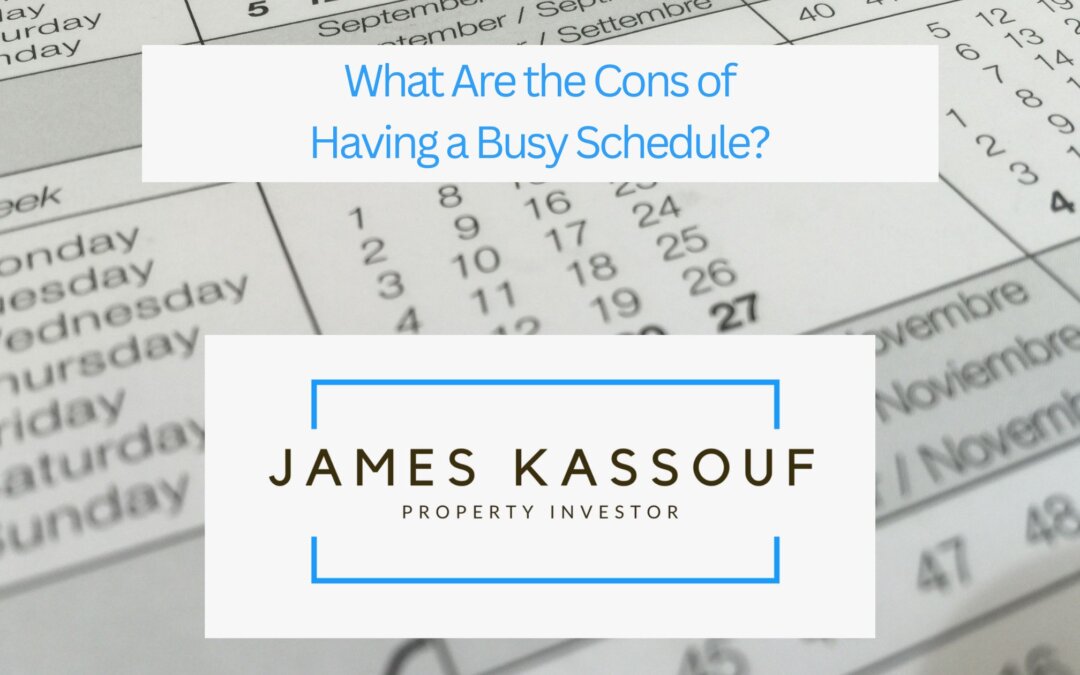In today’s fast-paced and demanding world, many individuals are caught up in a busy schedule. While productivity and achievement are often associated with a jam-packed calendar, it’s essential to recognize the potential downsides of a consistently hectic lifestyle.
Increased Stress Levels
One of the most prominent consequences of a busy schedule is heightened stress levels. Constantly rushing from one task to another, with little time for relaxation or self-care, can affect physical and mental well-being. Stress-related symptoms such as fatigue, irritability, and decreased productivity can manifest, ultimately impacting the overall quality of life.
Limited Time for Personal Growth
A packed schedule leaves minimal time for personal growth and self-improvement endeavors. Engaging in activities that foster personal development, such as pursuing hobbies, reading, or attending workshops, often gets pushed aside in favor of completing immediate tasks. This lack of unique growth opportunities can hinder long-term fulfillment and limit the chance to explore new interests and passions.
Strained Relationships
An overly busy schedule can strain relationships with family, friends, and significant others. Limited availability and constant preoccupation can lead to decreased quality time and emotional disconnection. Nurturing relationships requires time and effort; neglecting these aspects due to a packed schedule can result in feelings of isolation and detachment.
Reduced Productivity and Burnout
A busy schedule may only sometimes lead to enhanced productivity. Focus and effectiveness can diminish when overwhelmed with an excessive workload and constant multitasking. Over time, this can result in burnout, characterized by emotional exhaustion, decreased motivation, and reduced job satisfaction. The quality of work may suffer, affecting performance and long-term career prospects.
Impaired Decision-Making Abilities
A hectic schedule can impair decision-making abilities. When faced with numerous tasks and deadlines, individuals may experience decision fatigue. This cognitive phenomenon refers to deteriorating decision-making quality and rationality after prolonged decision-making. In this state, essential choices may be made hastily or impulsively, potentially leading to suboptimal outcomes.
Neglected Self-Care and Well-being
Maintaining a busy schedule means sacrificing self-care and neglecting personal well-being. Adequate sleep, regular exercise, and healthy eating habits take a backseat when time is scarce. Neglecting these fundamental aspects of self-care can lead to a decline in physical health, a weakened immune system, and increased susceptibility to illnesses.
Missed Opportunities for Reflection and Creativity
A hectic schedule leaves little room for reflection and creative thinking. Constantly rushing from one task to another leaves little time to pause, reflect on experiences, and generate innovative ideas. Insight and creativity often emerge from moments of introspection, which are difficult to achieve when constantly in motion.
While a busy schedule may seem synonymous with productivity and accomplishment, it’s essential to acknowledge the potential drawbacks accompanying this lifestyle. Heightened stress levels, limited time for personal growth, strained relationships, reduced productivity, impaired decision-making abilities, neglected self-care, and missed opportunities for reflection and creativity are all consequences of maintaining a jam-packed schedule. Striking a balance between productivity and well-being is crucial for long-term success and overall satisfaction.

